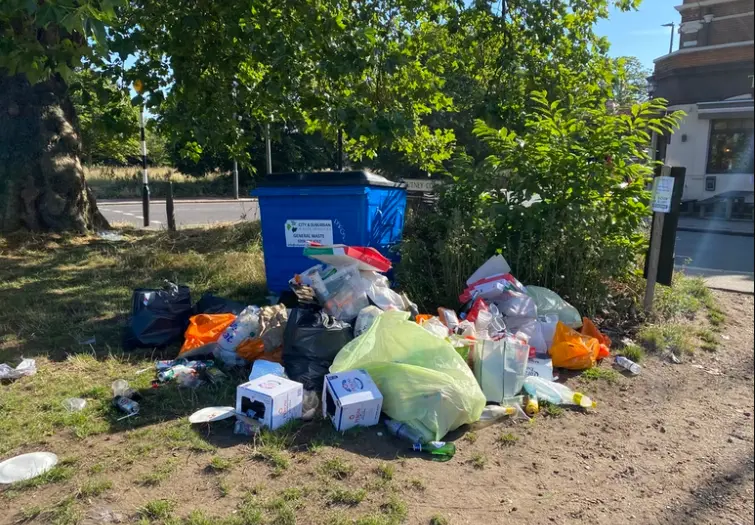Rubbish removal might seem straightforward, but there are numerous pitfalls that can complicate the process. Whether you’re clearing out your loft, tidying up the garden, or simply getting rid of everyday waste, knowing what to avoid can save you time, money, and hassle. Let’s explore the top 10 rubbish removal mistakes and how to steer clear of them.
1. Ignoring Local Regulations
Many people overlook the importance of adhering to local waste disposal regulations. Councils have specific rules about what can be disposed of and where. Ignoring these can lead to fines or even legal trouble.
Before you start, check your local council’s website for guidelines. They often provide information on recycling, hazardous waste, and bulky item disposal. Following these rules ensures you’re not only compliant but also environmentally responsible.
2. Overloading Bins
It’s tempting to cram as much as possible into your bins to avoid extra trips. However, overloading can cause several issues. Overfilled bins might not be collected, or worse, they could spill, creating a mess and attracting pests.
Stick to the weight and volume limits specified by your council. If you consistently have more waste than your bins can handle, consider arranging for an additional bin or scheduling more frequent collections.
3. Mixing Hazardous and Non-Hazardous Waste
Hazardous waste, such as batteries, chemicals, and electronics, requires special handling. Mixing these with regular rubbish can be dangerous and is often illegal.
Separate hazardous items and take them to designated disposal centres. Many councils offer special collection services for hazardous waste, ensuring it’s dealt with safely and responsibly.
4. Failing to Recycle Properly
Recycling is more than just tossing items into a bin. Contaminating recyclables with non-recyclable materials can render the entire batch unusable.
Familiarise yourself with what can and cannot be recycled in your area. Rinse out containers, remove labels if required, and sort items correctly. Proper recycling helps reduce landfill waste and conserves resources.
5. Not Planning Ahead
Rubbish removal often requires more planning than people realise. Without a clear plan, you might find yourself overwhelmed or facing unexpected costs.
Start by assessing the volume and type of waste you need to dispose of. Determine if you need a skip, a man-and-van service, or just your regular bins. Planning ahead can help you choose the most efficient and cost-effective method.
6. Choosing the Wrong Service
Not all rubbish removal services are created equal. Selecting the wrong one can lead to higher costs, delays, or even incomplete removal.
Research different services and read reviews. Look for companies that are licensed and insured. A reputable service will provide clear pricing and be transparent about what they can and cannot take.
7. Neglecting to Sort Waste
Throwing everything into one pile might seem easier, but it can complicate disposal and increase costs. Sorting waste into categories like recyclables, general waste, and hazardous items makes the process smoother.
Take the time to separate your rubbish. This not only makes it easier for removal services but also ensures that recyclable and hazardous materials are properly handled.
8. Underestimating the Volume of Waste
It’s easy to misjudge how much rubbish you have. Underestimating can lead to insufficient disposal solutions, requiring multiple trips or additional services.
Measure the volume of waste accurately. If in doubt, opt for a slightly larger skip or more frequent collections. It’s better to have a bit of extra space than to be caught short.
9. Disposing of Items Illegally
Fly-tipping, or illegal dumping, is a serious offence with hefty fines. Some people resort to this out of convenience or to avoid disposal fees, but the consequences far outweigh the benefits.
Always use authorised disposal methods. If cost is a concern, look for council-provided options or community recycling schemes. Illegal disposal harms the environment and can lead to significant penalties.
10. Forgetting About Donations
Many items that end up as rubbish could be reused or repurposed. Furniture, clothes, and electronics in good condition can often be donated instead of discarded.
Consider local charities, shelters, or online platforms where you can give away items. Donating not only reduces waste but also supports those in need.
Conclusion
Rubbish removal is more complex than it appears at first glance. By avoiding these common mistakes, you can ensure a smoother, more efficient process. Remember to check local regulations, plan ahead, and choose the right service for your needs. Proper sorting and recycling, along with considering donations, can make a significant difference. By taking these steps, you’ll not only save time and money but also contribute to a cleaner, more sustainable environment.

